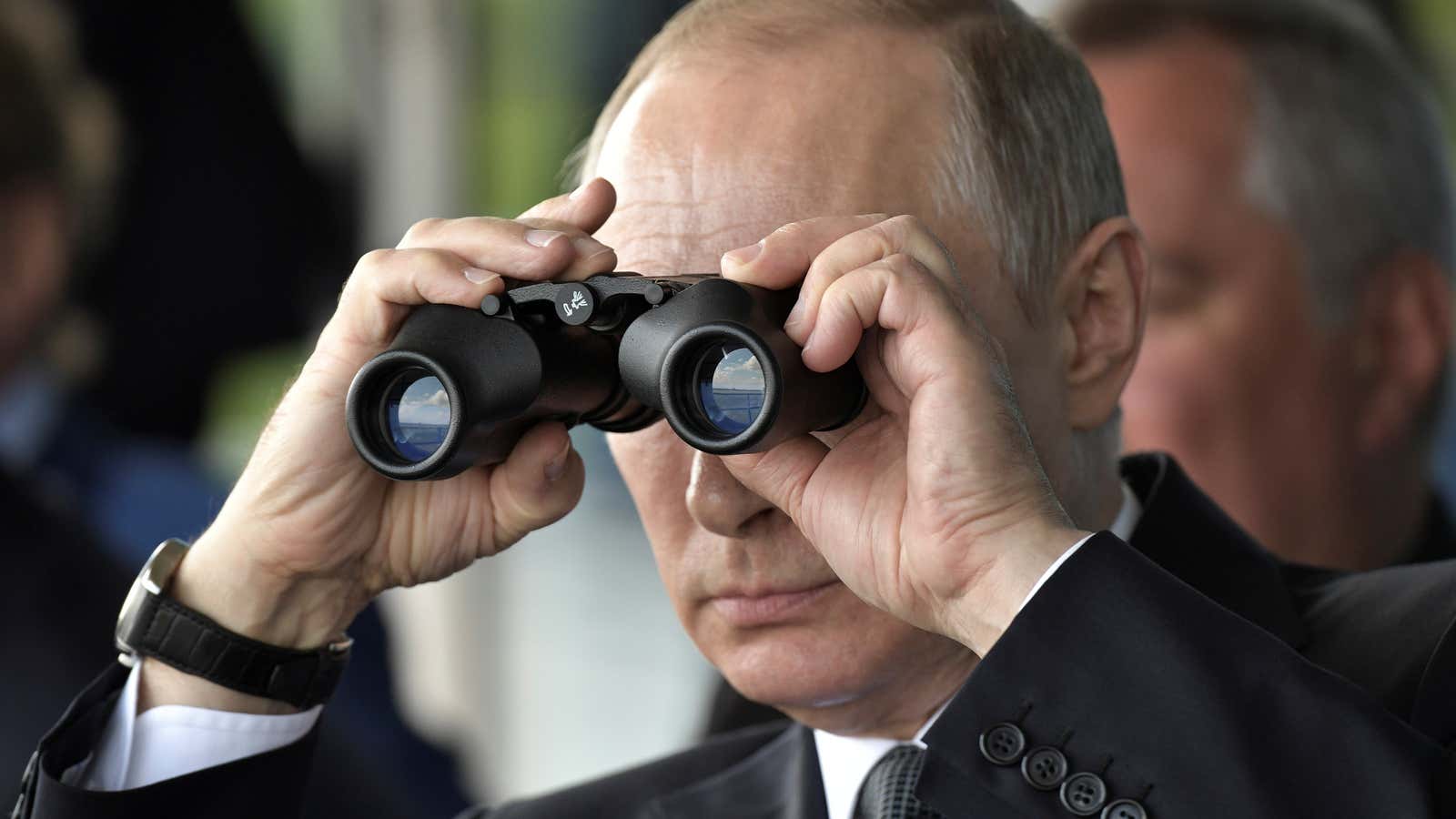Anxiety in Moscow is deepening over an imminent new US sanctions list.
A leading Russian paper estimates that 300 oligarchs could be named. To avoid inclusion on the list, some are reportedly changing their schedules to avoid being seen with president Vladimir Putin. Others are liquidating holdings that might be exposed. Mikhail Fridman, head of one of the country’s most important private banks, said he is stopping working with the country’s defense industry for fear of being sanctioned.
That fervor has reached Washington, where oligarchs are desperately lobbying for information about the list and, if possible, to get their names off it. While the list is just an advisory document outlining oligarchs considered close to the Kremlin, those on it could later be sanctioned and will almost certainly find themselves the subjects of a host of new compliance checks when trying to work with Western companies.
Daniel Fried, who used to coordinate sanctions at the US state department, told Bloomberg earlier this week that he had been approached for help. After he announced that, even more people have asked for his expertise. Most approaches were made through lobbyists, who couched their requests as asking for information on behalf of an unnamed Russian client, Fried says. Others suggested they were willing to pay “lots of money” for well-connected people who could act as “consultants” to keep clients off the list, he said.
“That had the effect of sharpening my attention and convincing me that they really were nervous about it,” says Fried. He declined the offers.
Some Russians fearful of inclusion on the sanctions list have also appeared in person. “I’ve seen several of the big oligarchs here,” says Anders Aslund, a senior fellow at the Atlantic Council think tank, who has also been approached for information, but wasn’t asked to help people get off the list. He added that he’s never seen this level of lobbying by Russian businessmen in Washington before.
Neither Aslund nor Fried, who work together at the Atlantic Council, would name the lobbyists that had approached them or the oligarchs they represented. Fried said they seemed to be people outside Putin’s “closest inner circle.” Aslund said “mostly it is the people who should not really be worried who are worried.”
Andrei Piontkovsky, a visiting fellow at the Hudson Institute and fierce Kremlin critic who fled Russia in 2016, said he had also been approached several times by lobbyists and that a “who’s who of Putin’s kleptocracy” was trying to stay off the list.
The level of angst generated is a sign the list is having its desired effect, even before being published. “The purpose of sanctions is to change behavior,” says Fried. “To provide incentives to the Russian elite, as individuals, to keep their distance from Putin and incentives to them, as a class, that all would be better off if Putin weren’t starting wars with his neighbours or attacking the US or Europe through electoral shenanigans or disinformation.” So, people staying away from Putin or, in Fridman’s case, changing parts of his business strategy, is exactly what the US government wants.
